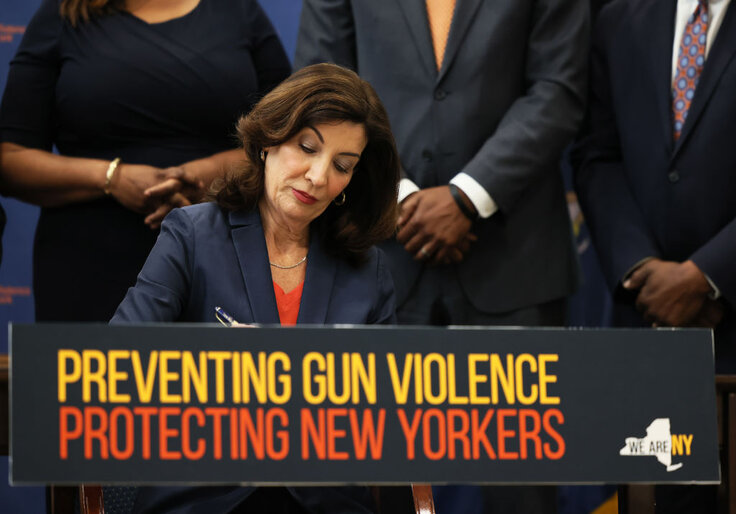I’ve written before about the Grieving Families Act, a badly needed update to New York’s wrongful death statute that dates to 1847. My first post was in 2017, but a version of the bill has bounced around Albany for 30 years.
By way of brief background, for those too lazy to hit the link above, in a wrongful death case in New York there is a claim for monetary loss – be it lost wages or even the economic value of cooking and cleaning that one household member might perform.
But there is little monetary claim over the loss of a child, or a retired parent, or a disabled family member. If you are rich, the pecuniary claim may be large, but if you are not, then you may be as we lawyers like to say, shit out of luck. This restriction obviously has a disproportionate effect on those with low incomes.
Enter, the Legislature, which in 2022 finally passed a bill after long efforts that allowed for family members to make claims for grief, as can now be done in 48 out of 49 other states. Gov. Kathy Hochul should have signed that bill, passed by large majorities of both legislative houses. But she vetoed it.
So last year the Legislature tried again, and passed a more limited bill (restricting the definition of family members), again with overwhelming support. The new bill offered several modifications to win the Governor’s support:
“These narrowed the pool of family members eligible for damages, reduced the statute of limitations from three-and-a-half years to three years, removed a provision that would have covered disorders resulting from grief and limited retroactivity only to incidents that occurred on or after July 1, 2018.”
But on December 29th, she vetoed that one also.
An article in City & State New York, gives the background of that veto: Hochul wanted to lard it with so many poison pills it would be completely neutered:
In her counter-proposal, a copy of which was shared with City & State, Hochul suggested limiting the law only to deaths of New Yorkers 18 and under, completely removing retroactivity for existing lawsuits, lowering the statute of limitations from three years to two (which is the current law), rejecting any expansion of family members eligible for damages under the statute and setting a sunset date of three years after the law took effect.
These restrictions simply gut the whole point of the bill.
Her complaint that the bill would wreak havoc on businesses is belied by the evidence. As an op-ed in Albany’s Times Union notes:
In 2019, plaintiffs filed approximately 77,427 tort cases in New York. Of those, only 126 cases involved claims for wrongful death — a microscopic .15% of all cases — according to state Office of Court Administration data. This statistic exposes the absurdity of any prediction that the act would cause even a 1% increase in losses.
Since both the Senate and the Assembly are both currently governed by the Democrats, and the Governor is a Democrat, they are loathe to override her veto. Making enemies within one’s own party is not necessarily the secret sauce of success on a wide range of other issues that confront legislators and demand negotiation. As per NY Assembly leader Carl Heastie:
“Even though he is disappointed with the governor’s vetoes, Heastie is not ready to discuss veto overrides.
“[Veto overrides] are always…nuclear options and you would hope to never get to that point,” Heastie said.
He pointed to the Legislature’s historic cooperation with Hochul over the past few years.”
On the other hand, given Hochul’s extreme position that she will only a wholly ineffective bill, then override is the only alternative.

